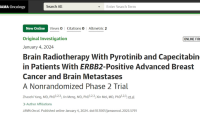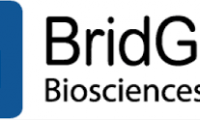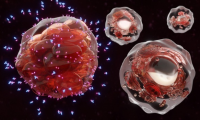-
With Phase 3 Studies Ongoing in Bladder Cancer, CG Oncology Plots Course for IPO
- Source: drugdu
- 82
- January 9, 2024
-
BridGene inks collaboration and licensing agreement with Galapagos to discover small molecule drugs for oncology targets
- Source: drugdu
- 101
- January 9, 2024
-
Owkin and Evotec partner to accelerate therapeutics in oncology and I&I
- Source: drugdu
- 86
- January 9, 2024
-
FDA Grants Fast Track, Breakthrough Designations to CG Oncology Inc’s Cretostimogene Grenadenorepvec
- Source: drugdu
- 147
- January 6, 2024
-
AstraZeneca and generative AI company Absci enter $247m oncology partnership
- Source: drugdu
- 124
- December 8, 2023
-
AbbVie diversifies oncology portfolio with $10.1 bn ImmunoGen acquisition
- Source: drugdu
- 100
- December 2, 2023
-
Alkermes Spins Off Oncology Business with $275M to Focus on Neuroscience
- Source: drugdu
- 128
- November 17, 2023
-
Merck KGaA and Hengrui Pharmaceuticals announce oncology partnership worth over €1.4bn
- Source: drugdu
- 114
- November 2, 2023
-
Siemens Healthineers buys Aspekt to bolster radiation oncology services
- Source: drugdu
- 101
- September 29, 2023
your submission has already been received.
OK
Subscribe
Please enter a valid Email address!
Submit
The most relevant industry news & insight will be sent to you every two weeks.













